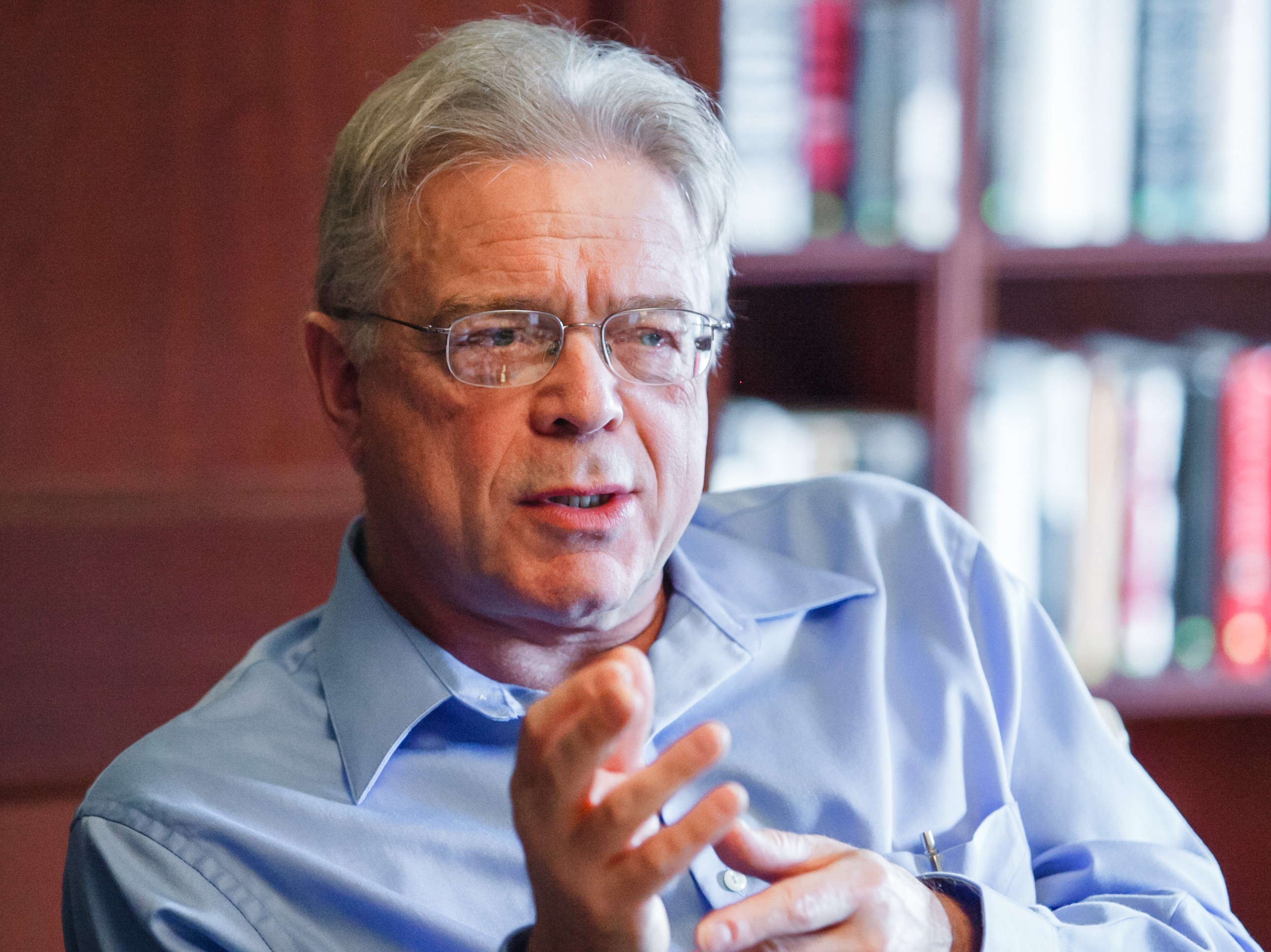
Joshua Muravchik író, publicista, külpolitikai szakértő 1947-ben született New Yorkban. Szocialistának indult, de aztán kulcsszerepe volt egy korábban baloldali és liberális értelmiségiekből alakult csoportban, amely szembefordult a baloldallal és később "neokonzervatívok" néven lett ismert. Ronald Reagan elnöksége idején fontos szerepet játszottak a külpolitika alakításában. Tizenegy könyv szerzője, köztük a nagy sikert aratott Földreszállt mennyország – A szocializmus története című köteté. Ezen felül több mint 400 politikai és külpolitikai témájú cikket publikált, többek között a New York Times, a Washington Post, a Wall Street Journal, a Foreign Affairs, a Foreign Policy, a New York Times Magazine, a Commentary, a New Republic és a Weekly Standard hasábjain. Joshua Muravchik, aki Georgetowni Egyetemen szerzett PhD-fokozatot nemzetközi kapcsolatok területén, jelenleg a washingtoni Világpolitikai Intézet (Institute for World Politics) kiemelt munkatársa. Volt az American Enterprise Institute, a George W. Bush Intézet, a Johns Hopkins School for Advanced International Studies, a World Affairs Institute és a Washington Institute for Near East Policy munkatársa és ösztöndíjas kutatója. Korábban tagja volt az Egyesült Államok Külügyminisztériumának demokrácia előmozdításával foglalkozó tanácsadó bizottságának, a Kínai Népköztársaságnak szóló műsorszórási bizottságnak, valamint az Egyesült Államok Polgárjogi Bizottságának Maryland-i tanácsadó bizottságának. Muravchikot a Wall Street Journal egyszer úgy jellemezte, mint "talán a legmeggyőzőbb és legkörültekintőbb a neokonzervatív külpolitikai írók közül". Joshua Muravchik hazánk elkötelezett támogatója, 2002-ben részt vett a Terror Háza Múzeum megnyitó ünnepségén, majd Magyarországra látogatott, valahányszor magyarul is megjelent egy-egy kötete. Utoljára 2018-ban tartott nagyívű előadást Budapesten az Első Világháborús Centenáriumi Emlékbizottság által szervezett Új világrend született című nemzetközi konferencián.
Joshua Muravchik, a writer and an expert on international politics, was born in New York in 1947. Once a socialist, he was a key figure in a group of former liberal and leftist intellectuals who turned against the left and came to be called "neoconservatives". They became an important voice in U.S. foreign policy beginning with the administration of President Ronald Reagan. Muravchik is the author of 11 books, including his highly successful Heaven on Earth: The Rise and Fall of Socialism (2002). He has also published more than 400 articles on politics and international affairs, contributing to, among others, the New York Times, the Washington Post, the Wall Street Journal, Foreign Affairs, Foreign Policy, the New York Times Magazine, Commentary, the New Republic, and the Weekly Standard. Mr. Muravchik, who received his Ph.D. in International Relations from Georgetown University, is an Adjunct Professor at the Institute for World Politics. He has been a fellow or resident scholar at the American Enterprise Institute, the George W. Bush Institute, the Foreign Policy Institute of the Johns Hopkins School for Advanced International Studies, the World Affairs Institute, and the Washington Institute for Near East Policy. He formerly served as a member of the State Department’s Advisory Committee on Democracy Promotion; the Commission on Broadcasting to the People’s Republic of China; and the Maryland Advisory Committee to the U.S. Commission on Civil Rights. Muravchik was once described by the Wall Street Journal as "maybe the most cogent and careful of the neoconservative writers on foreign policy". Joshua Muravchik is a committed friend of Hungary. In 2002 he attended the inauguration of the Terror House Museum and has since visited Hungary each time one of his books was published in Hungarian. His last presence in Budapest was a lecture in 2018 in which he gave an extensive analysis of the problems of the early 20th century at an international conference entitled A New World Order was Born, under the aegis of the World War I Centenary Memorial Committee.